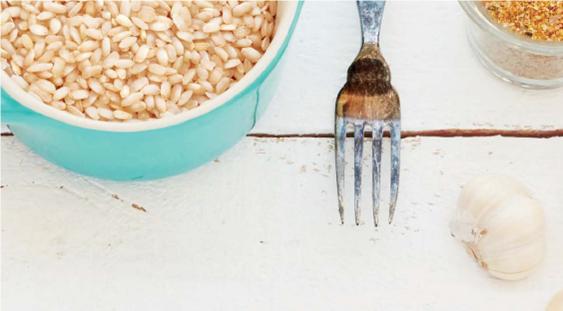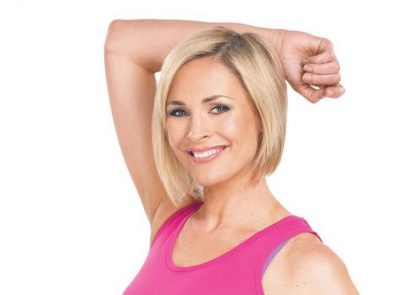There’s a world of diets out there – and it seems like a new one appears every other week. This means that it can be overwhelming trying to decide what’s best for you and your lifestyle. Knowing that you want to make a change in your eating habits for health reasons is great but where do you begin when there’s so much to choose from? But, before you get in a panic, we asked nutritionist Lizzy Cole to decipher four of the most popular food regimes of today, so you can see if they’ll fit in with your life and health goals. Bon appétit!
Veganism
What is it?
A stricter version of vegetarianism, this diet contains no animal products whatsoever – that includes eggs, dairy products and honey. Veganism has surged in popularity in recent years, with more than 3.5 million Brits now eating a plant-based diet – that’s seven percent of the population!*
Who is it best for?
People are choosing to go vegan for a variety of reasons, such as animal rights and ethical issues, religious beliefs, environmental concerns and for health purposes. Some studies show a link between veganism and a reduced risk of developing chronic conditions, including heart disease. Whether this is due to the diet itself, or a combination of lifestyle choices made by people following the diet, remains debatable.
How can I start it?
It’s much easier to adopt a vegan diet nowadays than it was 10 years ago! Many restaurants and cafés now cater for vegans on their menus, and supermarkets are stocking a lot more vegan produce. However, it’s important that you plan your diet carefully so that you’re consuming enough macro and micronutrients. For example, vegans are at risk of becoming deficient in calcium, iron and vitamin B12. As a nutritionist, I would not recommend a vegan diet for pregnant women, children, teenagers or the elderly, as these groups require additional nutrients compared to the rest of the population.
Paleo
What is it?
The paleo diet requires us to eat the way our ancestors ate. Essentially, this means avoiding all processed foods and alcohol and instead adopting a whole food diet. So far, it sounds sensible and intuitive, right? However, the paleo diet also asks you to shun dairy and grains, which is not something I would normally recommend.
Who is it best for?
Like the vegan diet, pretty much anyone can adopt the paleo diet so long as they plan it well. This is a great one if you’re looking to lose weight, as whole foods tend to be more filling, nutritious and lower in calories than their processed counterparts. However, I would advise against children, teenagers and the elderly from adopting a paleo diet due to it lacking both dairy and grains, which are important food groups for these demographics.
How can I start it?
Begin by clearing your cupboards of any processed food that’s high in sugar, salt and added ingredients. Then, go to the supermarket and shop like a caveman – think meat, fish, and plenty of fruits and vegetables. Check the ingredients list and, if there’s anything you can’t pronounce, put it back on the shelf!
Keto
What is it?
Keto is the diet du jour. However, the concept is nothing new. Keto encourages you to avoid carbohydrates in favour of a high-fat, moderate-protein fodder. Sound like Atkins? In a nutshell, this is what it is. The idea is that, by removing carbs (your body’s preferred source of energy), your body will shift to using fat (including body fat) instead.
Who is it best for?
The keto diet can be very effective for weight loss. However, this is a difficult diet to follow for anyone who likes the odd slice of bread or a bowl of porridge, and it’s very unsustainable in the long-term! Vegetarians also struggle with keto as their diets are naturally slightly higher in carbs than omnivorous diets. This is also not a good diet to try if you’re an athlete or a regular at the gym – carbs are important for maximising athletic performance, so don’t be surprised if you’re no longer able to smash your personal best.
How can I start it?
Like paleo and vegan diets, a keto diet needs careful planning to ensure you’re not missing out on important micronutrients – this time, the key ones are B vitamins and fibre. Be aware of not overdoing it on others, such as saturated fats and iron. Fill your shopping trolley with plenty of lean white meat, eggs, fish and green vegetables, as well as quark, Greek yoghurt, nuts and seeds.
Autophagic
What is it?
Autophagy is a natural regeneration process that occurs within the body. A combination of fasting, highintensity exercise and carbohydrate restriction can enhance this process, and has been hailed as the new way to lose weight and reverse ageing.
Who is it best for?
Popular opinion says that this is one to try if you’re looking to live longer or reduce the likelihood of developing chronic conditions such as Alzheimer’s and Parkinson’s disease. It’s a hardcore way to live, and requires long-term commitment, so is not one for the faint-hearted, and should not be attempted without supervision from a qualified nutrition professional or doctor.
How can I start it?
Seek advice from a registered nutritionist before you begin. Visit your GP to ensure you are also fit to take part in high intensity exercise and intermittent fasting.





















